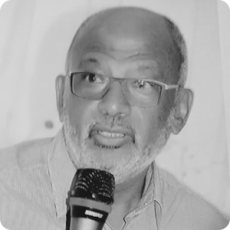The immediate response to the coronavirus by members of the Department of Community and Economic Development (DCED) has largely focused on the survival of small businesses and leveraging private sector contributions for crisis management. While the future and impacts of COVID-19 remain uncertain, agencies are now exploring the role of Private Sector Development (PSD) in promoting longer-term recovery. We asked several experts about how they see the role of PSD in building a better post-COVID-19 world.
How do you see the role of PSD in building a better post-COVID-19 world?

“Despite the obvious pain and confusion left in its wake, the COVID-19 pandemic presents the world with infinite opportunities – for survival and towards recovery from its onslaught. Private sector is the engine of growth, primarily because real economic growth hinges on the creation of and earnings from goods and/or services. As the world “motors” out of the pandemic, private sector development will be vital, especially since many sectors will emerge decimated. For sustained economic development, the private sector needs space to unleash entrepreneurial potential through creativity and flexibility for innovative solutions. Governments (individually and collectively) should provide an enabling environment for this while balancing their role of protecting the rights and interests of their constituents through common-sense regulation and maintaining fair competition. PSD, using a synergistic partnership approach, can mobilize urgent, collective action. Private sector, government, and civil society (especially consumers and private sector associations) – with crucial assistance from international development partners – can proactively participate in accelerating and strengthening recovery through visioning followed by an injection of strategic support. Notwithstanding a context of heightened uncertainty about the future, countries have the opportunity to rebuild around PSD – reimagining job creation and national development. I am excited about the prospects.”

“Private sector is the engine of growth for many economies yet has suffered massive losses due to supply and demand-based shocks to international trade (IFC, 2020) imposed in response to the pandemic which undermined its resilience to support growth. The global economy shrank by 3.5% in 2020 resulting in declined productivity, job losses, and a growing burden of debt specially for developing countries due to increased borrowing during the pandemic. The pandemic has reallocated resources to favor survival of the fittest sectors. Manufacturing productivity has been affected by lockdowns worldwide and the private sector needs to be innovative by venturing into new sectors that are more needed during the recovery. Electronic commerce and business support services stand out on this front. The global recovery projection of 5.5% in 2021 (IMF, 2021) can be supported by a robust, fully empowered private sector post-COVID-19 through strong partnerships for business as a sustainable solution to address financing shortfalls through private financing options and increased private sector involvement in policy development.”

“At the current stage, governments are spending at all levels to tackle COVID-19 which accounts for a huge percentage of their GDP. By the end of the pandemic, governments should obviously have dropped this expenditure. The private economy should boom as the government sector decreases emergency spending and redirects investment to the former. Small-scale farmers are the world’s largest group of local food producers. Investments in sustainable farming practices will play a fundamental role in feeding communities. Investing in this sector can generate employment of between 12 to 18 million young Africans every year. After decades of poor accomplishment in development programs, paradoxically this could be the opportunity for a better investment in PSD to lift millions of people & SMEs.”

“The private sector has a crucial role to play in building a better longer-term recovery from COVID-19. The pandemic crisis offers numerous opportunities to rethink and redesign business models and investment priorities. In a systemic perspective, private sector development will need to be aligned with sustainable innovation throughout the business value chain and will have to build in-house capacities to engage in greener and more sustainable production practices, including the promotion of decent work conditions and gender balance. Small firms might have to strongly connect to their localities, identifying local needs and ideas to solve old demands exacerbated by the pandemic as well as new ones. Despite the increasing role of digital technologies, private sector development will have to look at what is not digitizable, especially in developing countries, in which information technology is far from being fully implemented or widely accessible. There are huge untapped needs in the access to basic goods and services (i.e., energy, water, health, education, and skills training) that the private sector, in partnership with communities and institutions at all levels, can support mitigating.”

“I think with the ongoing international hygiene situation, SMEs can be one of the main drivers for the building of a better post-COVID-19 world. Being amongst the pillars of the foundations of strong local economies, and given their closeness to populations and authorities, SMEs can use this essential position to contribute to this relaunch. One of the main steps for me could be for them to understand that it is still possible to do good business and make high profits that include more sustainable production and management. Therefore, according to each region/area and type of production, SMEs can identify a SDG and adapt it to its reality to contribute to its achievement. For example, SMEs in Africa can very well try to develop their internal infrastructures to sell more on the continent since they find it more easy and cheaper to sell to other continents than in Africa. This can be done in agreement with the SDG 9 which is to “build resilient infrastructure, promote sustainable industrialization and foster innovation”. A stronger intra-Africa market can have a huge impact that will also have the potential to provide solutions to other local issues. Of course, this cannot be done without the consistent help of local authorities and administrations.”

“In the major trend of ongoing socio-economic transformations not seen since WWII which COVID-19 has accelerated dramatically, the private sector is likely to become highly polarized between an “economically self-sufficient” role, managed or overseen by quasi-sovereign international entities, and a “managed economic functionality” largely overseen by the state and dependent on macro-economic policies aimed at maintaining social order. For this transition, PSD can essentially ensure that there is as much entrepreneurship as possible in a gig economy which suggests that “uberisation” of work is the manner in which the future use of labor (including unproductive labour) will be optimised. The generalization of “universal living allowances” to individuals will be paralleled by the generalization of private sector state management through continuous debt bondage. I’m not sure it’s going to be a better world, but the private sector will become the only space of individual freedom in an environment of economic dependency, even if such freedom is personal rather than economic.”

“In the post-COVID-19 world, you are likely to witness weak markets, even in established countries, facing supply chain constraints and capacity issues. Addressing these problems perhaps requires an interventionist approach in the short term. However, for long-term impact, I sincerely believe donors need to seriously consider embracing and adopting a PSD lens as a core pillar of support. Time and time again, the PSD approach has shown across the world how, when appropriately coupled with other forms of support, it can reach the last mile effectively and sustainably. Supporting local market actors allows programs to tap into the right incentive, creates more jobs and incomes, and essentially creates a win-win impact for all.”
Check out more than 120 job opportunities in the SME & Private Sector here.


